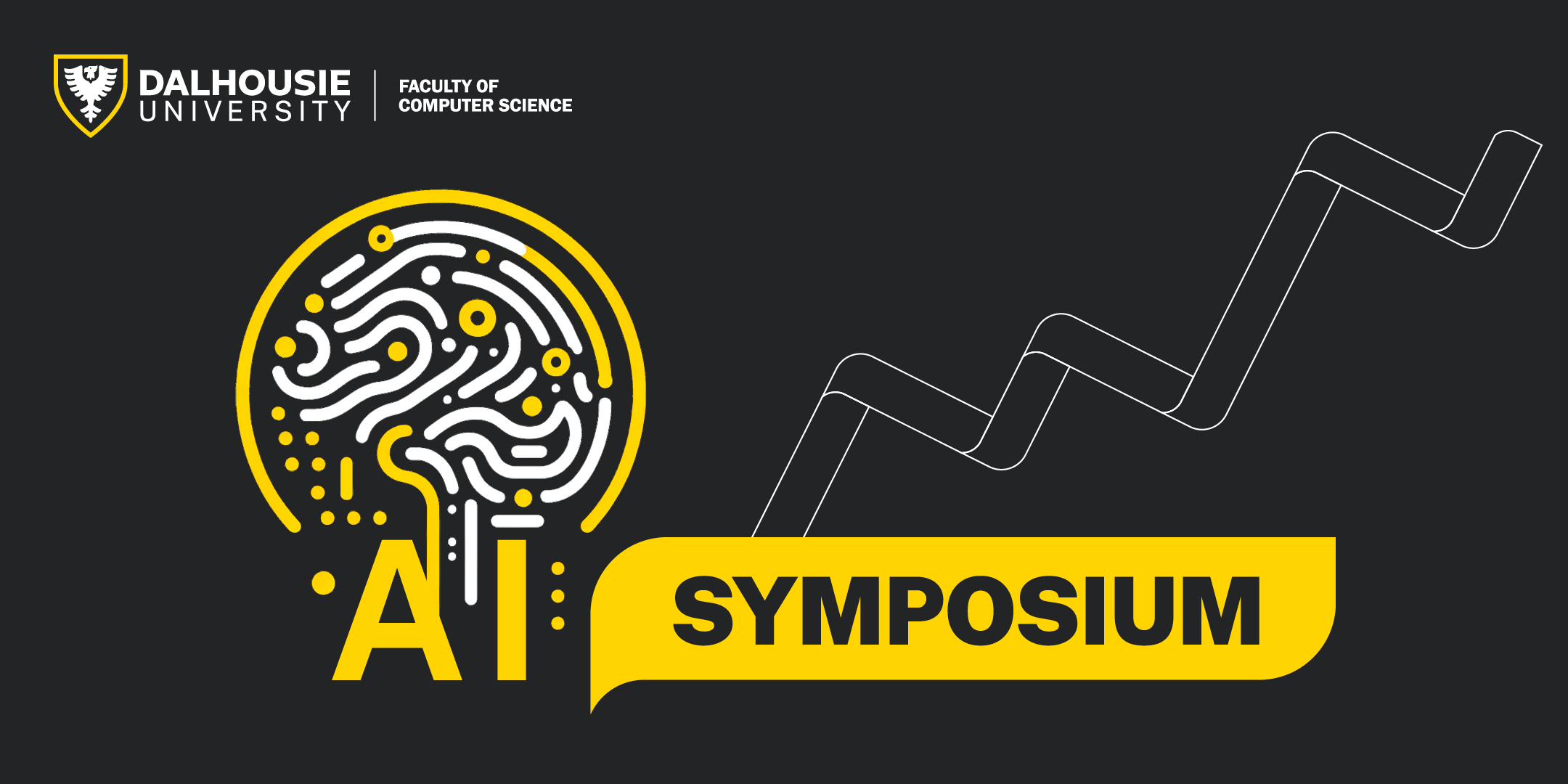
First Dalhousie AI Symposium
Thursday, 9 May 2024
Join us at the inaugural Dalhousie AI Symposium — an engaging forum dedicated to exploring the latest developments in artificial intelligence and machine learning. This Symposium brings together experts, enthusiasts, and professionals for a comprehensive overview of current AI research and its practical applications.
Table-of-contents
What to expect
- Talks by invited keynote speakers renowned in their fields, offering valuable insights into AI's evolving role in various sectors;
- Discussion panels and breakout sessions where key topics are examined in depth, promoting both learning and the exchange of ideas;
- Networking opportunities with experts within our AI community.
Who should attend
We are focusing on building connections with the local AI ecosystem, fostering collaboration and knowledge-sharing.
Ideal for industry, tech professionals, students and faculty members working/interested in the field of AI. We invite you to register and be a part of this meaningful conversation.
Call for posters
We are looking for submissions for poster presentations that cover, but are not limited to, any combination of the following topics:
- Fundamentals of AI and Machine Learning
- Ethical Considerations in AI
- AI in Healthcare
- AI in Oceans and Environmental Science
- AI in Agriculture
- AI in Law
- Law and Regulation of AI
- AI in Finance and Economics
- Natural Language Processing
- Computer Vision
- Robotics and Autonomous Systems
- AI in Education
- Data Science and Big Data Analytics
- AI for Social Good
- AI in Arts and Entertainment
- Human-Computer Interaction and AI
- AI and Cybersecurity
- Other topics in AI and deep learning
Submission guidelines:
- Abstracts should be a maximum of 500 words, clearly outlining the research question, methodology, contributions, results or other findings, and implications for the field of AI.
- Each submission must indicate the primary topic from the list above.
- Authors should ensure their abstracts are concise, comprehensive, and written in English.
- Submissions may have been published and presented previously or be under consideration for publication while being evaluated for this symposium -- we are not an archival event.
- If you already have a PDF of your proposed poster (with approximate dimensions 121.92 x 91.44 cm), please upload that, as well.
- If your abstract is accepted, you will be required to register for the event in order to present your poster.
Submission Deadline: 24 April 2024 anywhere on Earth
How to submit:
- Please submit your abstracts through the following link: OpenReview
- Submission reviews are ‘double-blind’, so avoid using identifying information in the abstract itself. You can include references to existing work, however, ensure that these are not in the first-person.
- Submissions will be reviewed on a rolling basis, and early submission is encouraged. Accepted abstracts will be presented as posters during the symposium, providing a unique opportunity to showcase your work to the local AI community.
- For any inquiries regarding the submission process or the Symposium, please contact us at dais24@dal.ca. We look forward to your contributions!
Program
Keynote speakers:
-
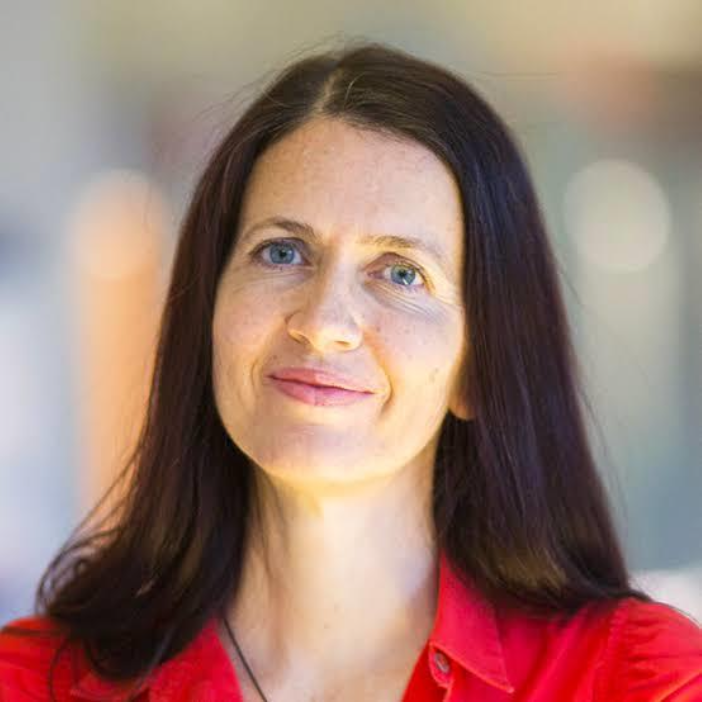
Why AI Is W.E.I.R.D. And Shouldn't Be This Way
Rada Mihalcea, Janice M. Jenkins Professor of Computer Science and Engineering, University of Michigan; Director of the Michigan Artificial Intelligence LabRada Mihalcea is the Janice M. Jenkins Professor of Computer Science and Engineering at the University of Michigan and the Director of the Michigan Artificial Intelligence Lab. Her research interests are in computational linguistics, with a focus on lexical semantics, multilingual natural language processing, and computational social sciences. She serves or has served on the editorial boards of the Journals of Computational Linguistics, Language Resources and Evaluations, Natural Language Engineering, Journal of Artificial Intelligence Research, IEEE Transactions on Affective Computing, and Transactions of the Association for Computational Linguistics. She was a program co-chair for EMNLP 2009 and ACL 2011, and a general chair for NAACL 2015 and *SEM 2019. She is an ACM Fellow, a AAAI Fellow, and served as ACL President (2018-2022 Vice/Past). She is the recipient of a Sarah Goddard Power award (2019) for her contributions to diversity in science, an honorary citizen of her hometown of Cluj-Napoca, Romania (2013), and the recipient of a Presidential Early Career Award for Scientists and Engineers awarded by President Obama (2009).
-
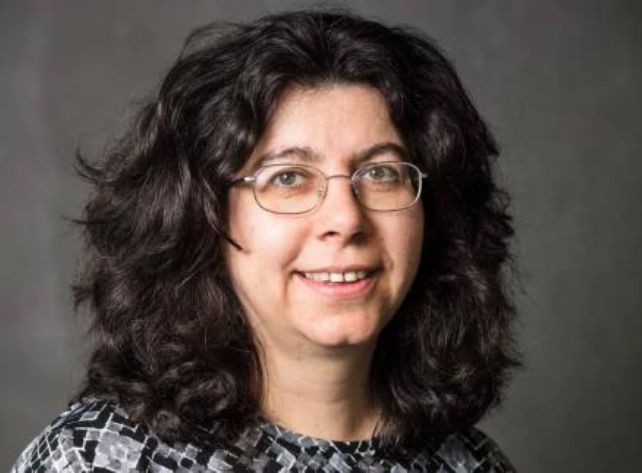
Reinforcement Learning for Therapeutics
Doina Precup, Canada-CIFAR AI Chair; Associate Professor, School of Computer Science, McGill University; Mila Research Director, Google DeepMind MontrealDoina Precup splits her time between McGill University / Mila, where she co-directs the Reasoning and Learning Lab, and Google DeepMind, where she is a Research Director and co-founder of the Montreal research team. Her research interests are in the areas of reinforcement learning, deep learning, reasoning under uncertainty, and diverse applications of machine learning, with a focus on health care. Dr. Precup is Senior Fellow of the Canadian Institute for Advanced Research since 2017, and was elected Fellow of the Royal Society of Canada in 2022. Dr. Precup is also involved in activities supporting the organization of the wider Quebec and Canadian AI ecosystems. She served as chair of the National Program Committee of the Pan-Canadian AI strategy. Dr. Precup is also passionate about including under-represented groups in machine learning. For this purpose, she co-founded the AI4Good lab, an initiative aimed at attracting more women to the machine learning field, while developing applications with positive social impact.
Invited talk speakers:
-
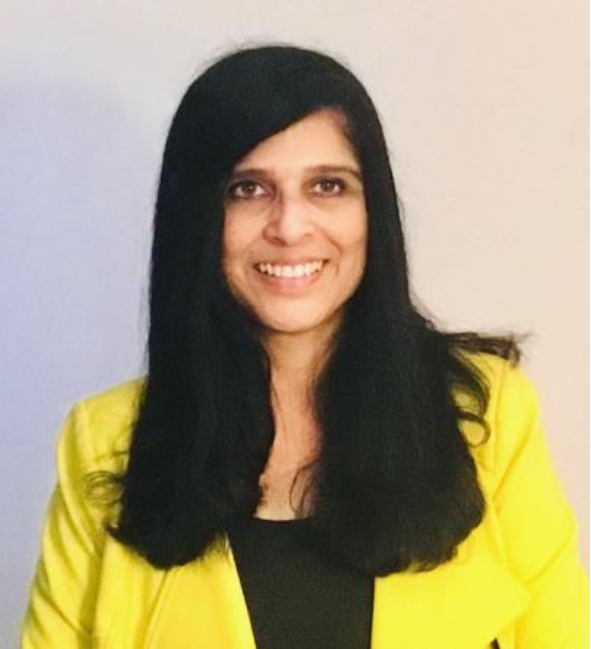 Tara Sampalli, Senior Director, Implementation Science and Evaluation, and
Global Health Systems Planning, Research, Innovation & Discovery,
Nova Scotia Health
Tara Sampalli, Senior Director, Implementation Science and Evaluation, and
Global Health Systems Planning, Research, Innovation & Discovery,
Nova Scotia Health
Dr. Sampalli is the Senior Director, Implementation Science, Evaluation and Global Health Systems in Nova Scotia Health and Health Innovation Hub. She has held multiple important roles at Nova Scotia Health and has made significant contributions in each of these roles. In her current role, she leads the Implementation Science Team, and the Network of Scholars and is working with many key partners in the province to support the Learning Health System strategy. Tara also holds an Assistant Professor position at the Faculty of Medicine at Dalhousie University.
Through her many roles in the organization, Tara has been instrumental in supporting multiple priority initiatives that have gone on to win provincial, national, and international quality awards. She has also secured numerous research grants and published several key articles related to health system improvements and transformations. She has a deep passion for working with patients and community partners.
Tara is currently leading and co-leading several priority implementations and innovations including technology and digital innovations such as Virtual Care Nova Scotia, Virtual Urgent Care, Virtual Emergency Care, and team-based models of care such as Mobile Primary Care, Pharmacy Clinics and many other initiatives that are bringing care closer to home / in your community initiatives. She is also the lead for the Nova Scotia’s International Community of Health Care Workers Engagement (NICHE) Program for internationally educated and trained professionals in the province. Tara is also one of the leads heading up the AI Centre of Excellence in the province.
-
 Scott McKenna, Chief Information Officer at Nova Scotia Health Authority and
IWK Health
Scott McKenna, Chief Information Officer at Nova Scotia Health Authority and
IWK Health
Scott McKenna started as Nova Scotia Health’s Chief Information Officer (CIO) in October 2022. Scott came to Nova Scotia Health from his role as Chief Information Officer for both Health Canada and the Public Health Agency of Canada, having spent the majority of his 32 year career working for federal government at the national level.
As Chief Information Officer for Nova Scotia Health Authority, Scott champions the Digital Health Strategy, is a senior leader on our One Person One Record team, and responsible for the planning and execution of the Information Management and Information Technology (IM/IT) strategy and operations. He also provides leadership and support to the IWK. Scott collaborates across the health and digital sectors with internal and external partners to create and achieve our digital health strategy.
As CIO with Health Canada and the Public Health Agency of Canada, he led the development and delivery of their first digital strategy in the modernization of program delivery. He also led the development and execution of Health Canada’s data strategy as well as facilitated and enabled programs in developing business solutions through their Innovation Hub. He was responsible for enhancing and maintaining all infrastructure, development and delivery of applications, and working with partners across government to enable the two lead departments in the Government of Canada’s response to the COVID-19 pandemic.
Scott has significant background in health services and navigating complex public sector infrastructure across Canada, developing a vision for digital, modernization and innovation while leading people and culture through transformational change initiatives. He brings leadership depth, developing digital and IM/IT strategy and ensuring it is aligned with the overall business strategy of the organization while leading the delivery of diverse operational areas to ensure IM/IT services are available to our teams and partners.
Workshops:
Workshop 1: A gentle introduction to deep learning
This 2-hour workshop will provide a gentle (non-mathematical but hopefully technically intuitive!) introduction to AI and Deep Learning, incorporating visual tools and interactive demonstrations. Content will include:
- Building blocks of generative AI
- What are LLM hallucinations and why do they happen?
- How do LLM’s generate text? How do they learn to do that?
- How do images get generated from prompts? Infact, how do prompts even work at all??
- Background concepts to help address the above questions
- Context to help you learn more about AI in the future
- How and why do many real-world AI applications fail? ← important for industry
- How and why do many AI applications succeed? ← also important for industry
- Background and discussion to better understand current issues (e.g., AI safety and security, creative AI, risks and benefits of AI in health)
- Lots of opportunity for questions and answers!
Who is this workshop for?
- Anybody who is interested in learning about artificial intelligence and deep learning, and would like intuitions, but is not comfortable with math
- Individuals from all faculties and departments across the university!
- Artists!
- Individuals from both technology and non-technology industries who are interested in possibilities of artificial intelligence!
- People who have math background but no ML background may still have fun recognizing geometry, linear algebra and optimization underlying the figures
Organizer:
-
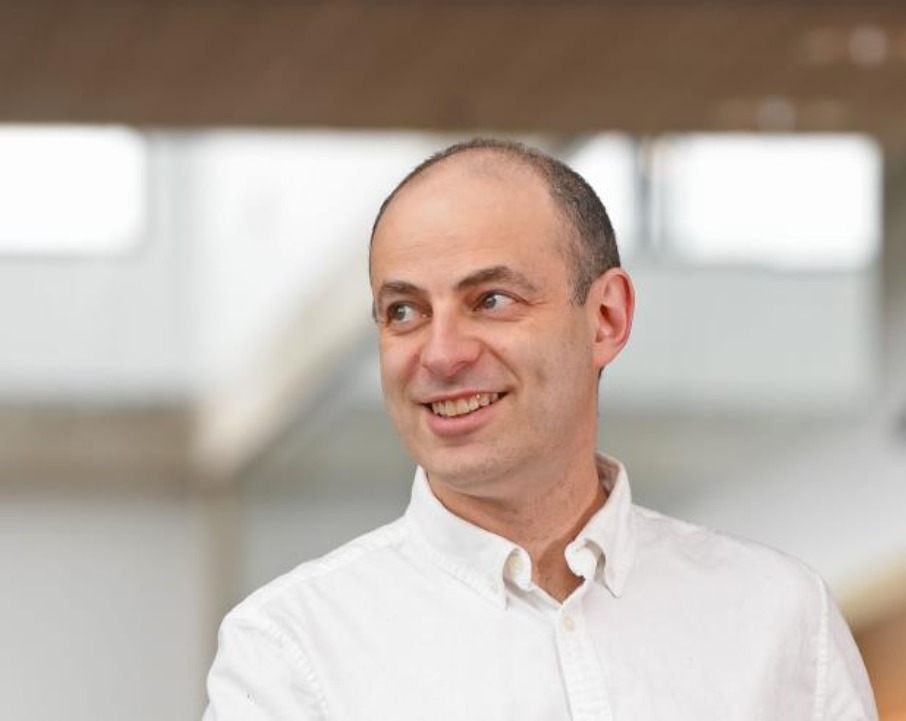 Sageev Oore, Canada-CIFAR AI Chair, Associate Professor, Faculty of
Computer Science, Dalhousie University; Research Faculty
Member, Vector Institute.
Sageev Oore, Canada-CIFAR AI Chair, Associate Professor, Faculty of
Computer Science, Dalhousie University; Research Faculty
Member, Vector Institute.
Sageev Oore’s research encompasses both foundational elements of deep learning (AI) as well as an emphasis on applications in music, creativity, and health. He has worked as a Visiting Research Scientist at Google Brain Research (Mountain View, California), as Research Faculty Member at the Vector Institute for Artificial Intelligence (Toronto), as a consultant/advisor and speaker, as a professional musician, and is currently also an Associate Professor in the Faculty of Computer Science at Dalhousie, where he supervises a wonderful team of graduate students. His lab is currently/recently funded by NSERC, CIHR, SSRHC, NFRF, CIFAR, and MITACS.
Sageev completed his undergrad in Mathematics at Dalhousie (BSc Hon, with Karl Dilcher) while also studying piano at the Department of Music (with Lynn Stodola), and completed graduate studies at University of Toronto (MSc and PhD, with Geoff Hinton).
Workshop 2: AI in healthcare
Organizers:
-
 Frank Rudzicz, Canada-CIFAR AI Chair, Associate Professor, Faculty of
Computer Science, Dalhousie University; Faculty Member, Vector
Institute
Frank Rudzicz, Canada-CIFAR AI Chair, Associate Professor, Faculty of
Computer Science, Dalhousie University; Faculty Member, Vector
Institute
Frank Rudzicz is an Associate Professor at Dalhousie University, co-founder of WinterLight Labs Inc., inaugural faculty member at the Vector Institute for Artificial Intelligence, status professor at the University of Toronto, and CIFAR Chair in Artificial Intelligence. His work is in machine learning in healthcare, especially in natural language processing, speech recognition, and safe AI. His research has appeared in popular media such as Scientific American, Wired, CBC, and the New York Times, and in scientific press such as ACL, NeurIPS, JAMA, and Nature.
-
 Tara Sampalli, Senior Director, Implementation Science and Evaluation, and
Global Health Systems Planning, Research, Innovation &
Discovery, Nova Scotia Health
Tara Sampalli, Senior Director, Implementation Science and Evaluation, and
Global Health Systems Planning, Research, Innovation &
Discovery, Nova Scotia Health
Dr. Sampalli is the Senior Director, Implementation Science, Evaluation and Global Health Systems in Nova Scotia Health and Health Innovation Hub. She has held multiple important roles at Nova Scotia Health and has made significant contributions in each of these roles. In her current role, she leads the Implementation Science Team, and the Network of Scholars and is working with many key partners in the province to support the Learning Health System strategy. Tara also holds an Assistant Professor position at the Faculty of Medicine at Dalhousie University.
Through her many roles in the organization, Tara has been instrumental in supporting multiple priority initiatives that have gone on to win provincial, national, and international quality awards. She has also secured numerous research grants and published several key articles related to health system improvements and transformations. She has a deep passion for working with patients and community partners.
Tara is currently leading and co-leading several priority implementations and innovations including technology and digital innovations such as Virtual Care Nova Scotia, Virtual Urgent Care, Virtual Emergency Care, and team-based models of care such as Mobile Primary Care, Pharmacy Clinics and many other initiatives that are bringing care closer to home / in your community initiatives. She is also the lead for the Nova Scotia’s International Community of Health Care Workers Engagement (NICHE) Program for internationally educated and trained professionals in the province. Tara is also one of the leads heading up the AI Centre of Excellence in the province.
-
 Scott McKenna, Chief Information Officer at Nova Scotia Health Authority
and IWK Health
Scott McKenna, Chief Information Officer at Nova Scotia Health Authority
and IWK Health
Scott McKenna started as Nova Scotia Health’s Chief Information Officer (CIO) in October 2022. Scott came to Nova Scotia Health from his role as Chief Information Officer for both Health Canada and the Public Health Agency of Canada, having spent the majority of his 32 year career working for federal government at the national level.
As Chief Information Officer for Nova Scotia Health Authority, Scott champions the Digital Health Strategy, is a senior leader on our One Person One Record team, and responsible for the planning and execution of the Information Management and Information Technology (IM/IT) strategy and operations. He also provides leadership and support to the IWK. Scott collaborates across the health and digital sectors with internal and external partners to create and achieve our digital health strategy.
As CIO with Health Canada and the Public Health Agency of Canada, he led the development and delivery of their first digital strategy in the modernization of program delivery. He also led the development and execution of Health Canada’s data strategy as well as facilitated and enabled programs in developing business solutions through their Innovation Hub. He was responsible for enhancing and maintaining all infrastructure, development and delivery of applications, and working with partners across government to enable the two lead departments in the Government of Canada’s response to the COVID-19 pandemic.
Scott has significant background in health services and navigating complex public sector infrastructure across Canada, developing a vision for digital, modernization and innovation while leading people and culture through transformational change initiatives. He brings leadership depth, developing digital and IM/IT strategy and ensuring it is aligned with the overall business strategy of the organization while leading the delivery of diverse operational areas to ensure IM/IT services are available to our teams and partners.
Workshop 3: Creating a community for AI and tech in Atlantic Canada: challenges and opportunities
Organizer:
-
 Tukan Das, VP Product Marketing at Foundry
Tukan Das, VP Product Marketing at Foundry
Tukan Das is the VP of Product Marketing at Foundry. He is the former CEO and co-founder of LeadSift, a venture backed tech start-up out of Halifax which was acquired by IDG in 2021. In a previous life, Tukan worked as a Research Engineer at a local search engine company on Text Mining and Information Retrieval problems and have published research in scientific conferences like WWW, WAW. Tukan is super excited about the possibilities of AI and has been active in the local community hosting regular meetups and hackathons - bringing in people from academia, industry and government together.
Workshop 4: AI for sustainability and oceans
Organizer:
-
 Chris Whidden, Assistant Professor, Faculty of Computer Science,
Dalhousie University; DeepSense COVE Digital Ocean Research
Chair
Chris Whidden, Assistant Professor, Faculty of Computer Science,
Dalhousie University; DeepSense COVE Digital Ocean Research
Chair
Panel on fast or slow AI adoption
Moderator:  Andrew Cochran, Instructor in Communication and Technology Innovation,
Faculty of Computer Science, Dalhousie University; Curator,
journalismAI.com
Andrew Cochran, Instructor in Communication and Technology Innovation,
Faculty of Computer Science, Dalhousie University; Curator,
journalismAI.com
Andrew Cochran is a computer science instructor at Dalhousie University, teaching courses on Communicating Computer Science Ideas and Technology Innovation. He also curates journalismAI.com, an annotated database with 600 entries on developments in AI and journalism dating from 2014.
At CBC, Canada's public broadcaster, he was senior managing director for Atlantic Canada, overseeing CBC's journalism and operations for radio, television, and digital platforms. Later, he was Head of CBC News Strategy and Transformation, directing the company's digital-first transition in its 33 Canadian locations.
His media career has consistently focused on technology's impact on storytelling and audiences. As an independent producer, he created science and technology documentaries, family dramas, and children's programming. Each combined new forms of online content with traditional TV formats. The programs appeared on CBC, PBS, Discovery, and several international networks.
His master’s degree is in electronic commerce from Dalhousie. His research interests are simplification, trust, communication noise, and AI in journalism.
Panelists:
-
 Christian Blouin, Associate Dean (Academic), Faculty of Computer Science,
Dalhousie University; Institutional Lead (AI Strategy),
Dalhousie University
Christian Blouin, Associate Dean (Academic), Faculty of Computer Science,
Dalhousie University; Institutional Lead (AI Strategy),
Dalhousie University
Christian Blouin has been associate dean (Academic) since 2015. He has had the opportunity to work alongside the talented faculty, students and staff of this faculty through a significant era of growth and fundamental changes. Since July 2023, he is acting as Institutional Lead (AI strategy) to help coordinate a future-forward approach to generative AI in the workplace and in higher education.
-
 Travis Lacroix, Assistant Professor, Department of Philosophy, Dalhousie
University
Travis Lacroix, Assistant Professor, Department of Philosophy, Dalhousie
University
Dr Travis LaCroix is an assistant professor (ethics and computer science) in the department of philosophy at Dalhousie University, where he also teaches in the Faculty of Computer Science. He is the author of Artificial Intelligence and the Value Alignment Problem: A Philosophical Introduction, which is under contract with Broadview Press. In addition to the philosophy and ethics of artificial intelligence, Dr LaCroix's research explores social dynamics, norms, and conventions, in addition to the philosophy of autism (for which he recently received an Insight Development Grant from the Social Sciences and Humanities Research Council).
-
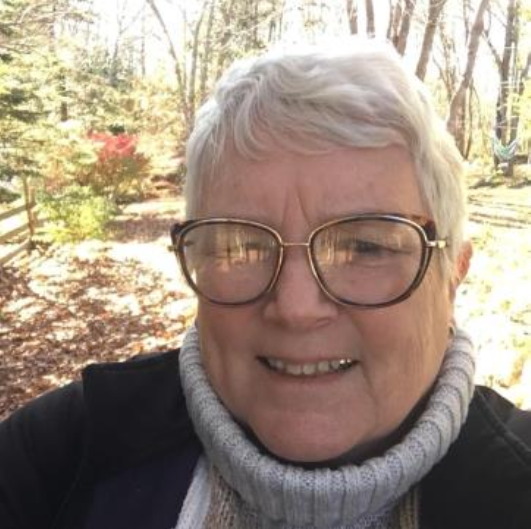 Carla A. Heggie, LLM Candidate, Schulich School of Law, Dalhousie
University; Instructor/Adjunct Professor, Faculty of
Computer Science, Dalhousie University
Carla A. Heggie, LLM Candidate, Schulich School of Law, Dalhousie
University; Instructor/Adjunct Professor, Faculty of
Computer Science, Dalhousie University
Carla A Heggie, a certified Information Access & Privacy Professional, is an LLM Candidate at the Schulich School of Law. Her thesis topic focuses on how the Personal Information Protection and Electronic Documents Act (PIPEDA) and Bill C-27—which proposes a Consumer Privacy Protection Act, a Personal Information and Data Protection Tribunal Act, and an Artificial Intelligence and Data Act—may impact on the privacy rights of Canadians as regards AI and specifically GenAI.
A full-time Instructor at the Faculty of Computer Science and an Adjunct Professor (FGS) at Dalhousie University, she has over 35 years in the privacy and access field, 28 years experience in policy with the NS Government, and has developed and taught a variety of privacy courses at Dalhousie.
Carla has spoken at conferences internationally on the topics of privacy, privacy ethics, privacy and AI, the governance and oversight of AI, information access, information management, policy, and patient-oriented research. She is a peer reviewer for CIHR, the Innovation & Research Directorate of the European Commission, and the Anaesthetic & Pain Research Group at Dalhousie Medical School.
-
 Tukan Das, VP Product Marketing at Foundry
Tukan Das, VP Product Marketing at Foundry
Tukan Das is the VP of Product Marketing at Foundry. He is the former CEO and co-founder of LeadSift, a venture backed tech start-up out of Halifax which was acquired by IDG in 2021. In a previous life, Tukan worked as a Research Engineer at a local search engine company on Text Mining and Information Retrieval problems and have published research in scientific conferences like WWW, WAW. Tukan is super excited about the possibilities of AI and has been active in the local community hosting regular meetups and hackathons - bringing in people from academia, industry and government together.
Schedule
8:00am
Registration, poster setup, and breakfast
8:45am
Welcome address
Andrew Rau-Chaplin9:00am
Keynote talk
Doina Precup(virtual)
9:45am
Invited talk
Tara Sampalli and Scott McKenna10:30am
Coffee break and poster session
10:45am
12:30pm
Networking lunch and mixer
13:00pm
Networking lunch and poster judging
14:00pm
Keynote talk
Rada Mihalcea(virtual)
14:45pm
15:45pm
Awards and closing ceremony
Registration
Tickets are available at EventBrite.
Sponsor
We are grateful to Springboard Atlantic for sponsoring this event. Springboard Atlantic is a member-based organization of universities and colleges within Atlantic Canada, including Dalhousie, that helps to grow Atlantic Canada’s innovation economy through collaboration among post-secondary institutions and industry.
Organizers
Lead organizer: Frank Rudzicz, Canada-CIFAR AI Chair, Associate Professor, Faculty of Computer Science, Dalhousie University; Faculty Member, Vector Institute
Supporting organizers:
- Aishwarya Shrestha, Alumni and Industry Engagement Manager, Faculty of Computer Science, Dalhousie University
- Anthony Rosborough, Assistant Professor, Schulich School of Law & Faculty of Computer Science, Dalhousie University
- Janarthanan Rajendran, Sexton Chair in Reinforcement learning, Assistant Professor, Faculty of Computer Science, Dalhousie University
- Laura Clark, Assistant Dean (Advancement), Faculty of Computer Science, Dalhousie University
- Matthew Doyle, Manager, Computer Science, Office of Commercialization and Industry Engagement, Dalhousie University
For further inquiries, please contact us at dais24 [AT] cs.dal.ca.